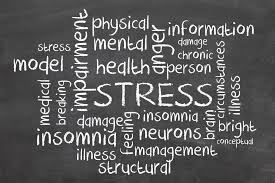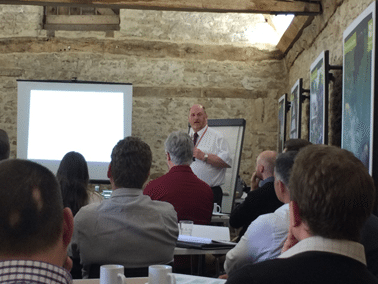Mental health at work and work-related stress
Yesterday was World Mental Health Day and mental illness is often not properly recognised at work. Indeed, many sufferers are too fearful of the reaction they may get if they were to tell their employer. As a result, they try and cope alone which can affect their health as well as their work productivity.
So, this week I thought that I would look at this often delicate subject to see what you can do to help yourself and your work colleagues or employees who are suffering.
We also have 2 recent HSE cases for you to look at and think about.
- The injured person fell four metres through one of the wood wool slabs onto the floor of the plant room, colliding with internal pipework.
- “I can’t quite put into words how it feels to wake up with no hands. I had five-month-old twin girls at the time of the accident, all I could think of when I woke up was the things I wouldn’t be able to do, for example I wouldn’t be able to hold my babies’ hands again, I wouldn’t be able to draw, play catch or teach my girls any of the things that I had learned with my hands.”
We hope you learn from the mistakes of others that are highlighted in our weekly newsletters and, as a result, do not have similar accidents at your workplace.
As ever, if you have a subject that you would like us to cover one week, please contact us by phone 01458 253682, email or via our Facebook page or by Twitter.
Mental health at work and work-related stress
Common mental health problems (CMHPs)
One in four people in the UK will have a mental health problem at some point. While mental health problems are common, most are mild. CMHPs tend to be short-term and are normally successfully treated, with medication, by a GP.
Mental health is about how we think, feel and behave.
Anxiety is feeling worried, uneasy or fearful a lot of the time. Some people find it hard to control their worries; their feelings of anxiety are more constant and often affect their daily lives. Anxiety can have both psychological and physical symptoms.
Depression is more than simply feeling unhappy or fed up for a few days – it is when you feel persistently sad for weeks or months. It affects people in different ways and can cause a wide variety of symptoms ranging from lasting feelings of unhappiness and hopelessness, to losing interest in the things you used to enjoy and feeling very tearful. There can be physical symptoms too, such as feeling constantly tired, sleeping badly, having no appetite or sex drive, and various aches and pains. Many people with depression also have symptoms of anxiety.
Anxiety and depression are the most common mental health problems. Often they are a reaction to a difficult life event, such as bereavement.
How CMHPs and work-related stress go together
Work-related stress and CMHPs often go together – the symptoms of stress and CMHPs are similar. For example loss of appetite, fatigue and tearfulness can be symptoms of both.
Work-related stress can aggravate an existing mental health problem, making it more difficult to control. If work-related stress reaches a point where it has triggered an existing mental health problem, it becomes hard to separate one from the other.
Work-related stress may result in mental health problems when it is experienced over a longer time. This can permanently injure the sufferer.
CMHPs and stress can exist independently – people can experience work-related stress and physical changes such as high blood pressure, without having anxiety and depression. They can also have anxiety and depression without stress.
The key differences between the two are their cause and the way they are treated.
Stress is a reaction to events or experiences in someone’s home life, work life or a combination of both.
CMHPs can have a single cause outside work, for example bereavement, divorce, postnatal depression, a medical condition or a family history of the problem. But people can have CMHPs with no obvious causes.
Employers can help manage and prevent stress by improving conditions at work. But you also have a role in making adjustments and helping someone manage a mental health problem at work.
In practice, it can be hard to distinguish when ‘stress’ turns into a ‘mental health problem’ and when existing mental health problems become aggravated by stress at work.
Advice for managers on mental health conditions
Talking at an early stage
As a manager, you may have employees who experience mental health difficulties. As soon as you notice that an employee is having mental health difficulties, talk to them – early action can help prevent them becoming more unwell.
If the person does not want to speak to you, suggest they speak to someone else, for example someone from your employee assistance programme, occupational health or their GP.
Line managers should concentrate on making reasonable adjustments at work, rather than understanding the diagnosis. Their GP, medical support or occupational health should be able to provide guidance on what you can do to help them.
If an employee goes off sick, lack of contact or involvement from their manager may mean they feel isolated, forgotten or unable to return. You can reduce the risk of them not returning to work by:
- keeping them informed about what is going on, including social events
- reassuring them early on and throughout their absence
Use routine management tools to identify and tackle problems or needs
Use scheduled work meetings, appraisals or informal chats about progress to find out more about any problems an employee may be having. You could have health and safety as an agenda item at meetings. This can be used for things like DSE assessments, as well as stress or mental health issues.
If you have specific concerns about someone, talk about these at an early stage. Ask questions in an open, exploratory and non-judgemental way. These conditions affect people differently, making adjustments to their job could relieve symptoms. You should be positive and supportive while exploring the issues and how you can help.
If a person has been off sick, you should discuss their return to work and reintegration into the workplace beforehand. A written plan can help. You both might want to agree when they have reached the stage of ‘business as usual’. At this point, you can use existing management processes to review their performance, needs and work plan.
Managing an employee who is tearful and upset
If an employee gets upset, talk to them, reassure them, tell them that you will give them all the help and support available. Explain that things will go at a pace that suits them. If you are in a meeting with them, ask if they would like someone else with them.
Try to be sensitive to the level of information the person can cope with. In the middle of a crisis they may not be able to think clearly and take in complex information. Try to stay calm yourself.
Problems can build up over time and while you may feel pressure to do something, it might be better to take some time to think about options properly. Agree with the person which issues are most urgent.
If the session is not helpful for the person or you, rearrange it for when they are less upset. If the problem carries on, you should encourage them to seek help, for example from occupational health or their GP.
A much smaller number of people will experience more severe anxiety or depression, associated with episodes of ‘mania’, with:
- extreme heightened activity
- psychosis
- loss of touch with reality
- hallucinations
- distortion of the senses
In these rare instances, an employee may behave in ways that impact on colleagues or clients and you should keep your responsibilities for all employees in mind.
Take the person to a quiet place and speak to them calmly. Suggest that you contact a friend or relative or that they go home and contact their GP or a member of their mental health team, if appropriate. You may be able to make an appointment and go with them to the surgery, if they want you to.
If someone is experiencing hallucinations or mania, they may not take in what you are saying. In this case, they will need immediate medical help. If an employee is disturbing others and refuses to accept help, seek advice from:
- your occupational health provider
- the person’s GP
- the NHS helpline – call 111
- or call an ambulance.
Managing a person with an ongoing illness
Most people who have ongoing mental health problems continue to work successfully. But when someone needs support, managers can work with them to ensure flexibility to suit their health needs.
People with mental health problems should be treated in exactly the same way as any other member of staff, unless they ask for help or demonstrate clear signs that they need it. It is discriminatory to make assumptions about people’s capabilities, their promotability or the amount of sick leave they may need because of their illness.
Coping strategies
Most people are encouraged to develop a coping strategy as part of their care. This often involves noting signs of a possible relapse and taking pre-emptive action, such as cutting down on work, being careful about drinking alcohol, taking exercise and finding time to relax. It is important you support the employee at this first warning stage. Small, inexpensive adjustments may well prevent a more costly period of illness.
Advance statements
Some people find it useful to draw up an ‘advance statement’ which explains how they want to be treated if they become unwell. The statement can cover practical arrangements such as details of the people to be contacted or provided with information.
It might be helpful to draw up an advance statement which relates to the workplace. It could include:
- signs that indicate the person is becoming unwell
- who to contact (perhaps a close relative, care coordinator or GP)
- what sort of support is helpful and what is not.
If an employee draws up an agreement with you, you should put the statement into practice to maintain trust.
Guidance and support
There is advice and support available to those in work who have experienced mental health issues, and their employers. There are several specialist organisations that can provide guidance and support.
Advice for employees with mental health conditions
If you already feel under pressure, it’s hard to distinguish when ‘stress’ turns into a ‘mental health problem’ and when an existing mental health problem is made worse by stress at work. Many of the symptoms of stress and a mental health condition are similar. The main differences are the severity and duration of the symptoms and the impact they have on your everyday life.
Most people with mental health problems are diagnosed and treated by their GP and continue to work productively. In fact, evidence shows that staying in work can be a great help to those affected.
Take action at an early stage
If you feel you have a problem, the sooner you do something about it, the better – it can stop you becoming more unwell. Line managers and colleagues can also play an important role in identifying when colleagues are behaving out of character, so be cooperative if your line manager approaches you with concerns.
Using ordinary management tools to identify problems and needs
It might be that certain tasks, work environments, times of the day or being part of a particular team is linked to your issues. If you feel you have a mental health problem, raise it with your line manager, HR or someone else in the workplace. You could make use of scheduled meetings, appraisals or informal chats about progress that you have with your manager – these can give you both a chance to talk about any problems you have.
Remember
- Stress does not affect everyone in the same way
- Your employer can make adjustments to ease your stress, but only if you give them a better understanding of your position
- Discussions can be positive – you can work out how your employer can help you
If you are returning to work after illness
Most people who have had an illness will recover and return to work. But if you have had time off sick, you should talk to your manager and agree a plan for your return to work before you come back. You may reach a stage in your recovery when you can return to work, before you are 100% ready for ‘business as usual’. This can mean you need some support or changes in your role or work to make your return easier. You should talk to your manager and work together to meet your needs. A written plan may help you both agree when you have reached the ‘business as usual’ stage.
If you remain unwell despite support, you should get help. Consider asking for a referral to your organisation’s occupational health department, if it has one, or see your GP. It is possible that your condition is covered by the Equality Act 2010 link to external website which requires your employer to make reasonable adjustments to help you get back into work. But if you don’t discuss these issues honestly with them, your manager is unlikely to be able to meet your requirements.
If you need further information please call us on 01458 253682 or send us an email.
We are travelling to the National CDM Awards next week!
The Wilkins Safety Group has been shortlisted for two APS National CDM Awards again this year.
 This is the 3rd year running we have made the finals.
This is the 3rd year running we have made the finals.
We have once again been shortlisted as finalists for Principal Designer of the Year 2017 and Consultancy of the Year 2017.
This year’s event is next Thursday the 19th October. We are being represented by a table of 10 people so please wish us luck!!
Hopefully, in this our 25th Year, we can go one better than the last two years and win the top award but we know that we are yet again taking on the big boys such as:
- Arcadis, who are a leading global Design & Consultancy firm employing 27,000 people over 70 countries and

- The Waterman Group which is a multidisciplinary consultancy and part of CTI Engineering, the leading Japanese engineering consultancy.
The APS National CDM Awards are now in their tenth year. They were started in 2008 to recognise, reward and share outstanding good practice in the Design and Construction Health and Safety Risk Management sector.
Taunton & Somerset CPD Group at The Lawns Taunton
Martin Kent our Customer Relations Manager has arranged this month’s seminar – see below. As previously requested, if you could let Martin know whether or not you can attend it would be greatly appreciated. Also, if you would like to give a talk, or know of somebody who would, please email Martin.
Our next Seminar will now be on Tuesday 17th October not the 18th due to catering availability. Could you please arrive by 12:15pm as we will in future be starting the presentation at 12-30pm prompt.
Our speaker for this one is Dave White from Robex Industrial Products
If you haven’t already booked your place, or if you are not on the CPD Seminar mailing list but would like to be please drop Martin an email and he will deal with your request.
Just to give you some advanced notice the next seminar will be 22nd November when Savills will be coming along.
Training Courses
We are pleased to announce that we have been appointed to provide “In House” training for three prestigious customers. One in Cheltenham and Two in London.
We have recently provided training for Regional Directors of Bovis Homes at their offices in Cheltenham
In October, we are training Representatives from Wellcome Trust at their office on Euston Road, London.
Then in November we are then providing two training days for staff at the British Museum in Bloomsbury London.
You too can enjoy the benefits of superior accredited training courses as enjoyed by these companies and others.
Listed below are our latest batch of “Open” courses which we are again running at the Taunton Racecourse which is beautifully situated in the heart of the South Somerset countryside. The unique atmosphere and panoramic views across the racecourse to the Blackdown Hills, along with their excellent buffet lunches, make the racecourse the perfect location for successful learning.
Also remember we are still available for running “In House” courses and are looking to add new training courses to our list.
If you have any questions about these courses or any other training or would like us to run a particular course for you, call Jon Wilkins of the Wilkins Safety Group on 01458 253682 or email him.
